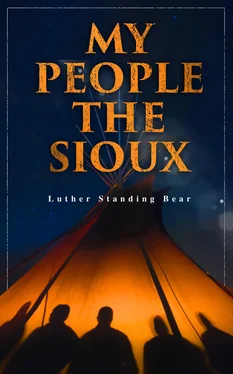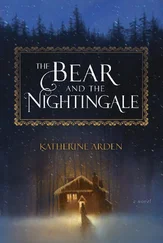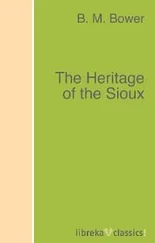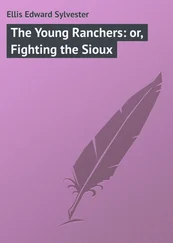When the train crew sighted the Indians in the distance, they began to shoot at them. The Indians then whipped up their ponies and gave chase. The men on the train were so busy jeering at the Indians and making fun of their attempt to catch up with them that they failed to watch the track ahead, not suspecting that the Indians would be smart and cunning enough to lay a trap for them. When the train reached the broken spot, it ran off the track and was badly wrecked.
My mother had hidden near by, and after the train smash-up she ran to it. It happened to be a freight, carrying supplies of all sorts to the distant West, and among the cargo was quite a quantity of maple sugar, gingham, and beads. My mother obtained from this train wreck the first beads ever seen by the Sioux Nation. Prior to that time, all the fancy work on moccasins or clothing was made with porcupine quills, which were dyed. In using these quills, the women would hold them in their mouths until soft, then, when they were used, the quill was flattened with the finger nail.
Being a very smart woman, my mother conceived the idea of using some of these beads in place of the quills, to see what they would look like. She beaded a strip of buffalo skin, using yellow beads for the background, instead of the white ones which are now used so much. This beaded strip she sewed on a buffalo calf skin, which I wore as a blanket. So I was the first Sioux Indian to wear beads around my body on a blanket.
The summer following my birth, the northern Sioux came to visit us. This must have been about the time of the sun dance, a religious ceremony which brought the entire tribe together. There was a creek running near our camp in the Black Hills which was swollen from the heavy rains. My mother had pitched our tipi near a spot where the water was shallow, and, as it was the best crossing, the visitors splashed through the water on their ponies and came up the hill past our tipi, where my mother had placed me, wrapped in my buffalo skin blanket carrying the beaded strip. She had placed a large basin of ‘wasna,’ or Indian hash, beside me, as a welcome to our guests, and I was the ‘reception committee.’ All the Indians, as they passed, stopped to pet me and get some hash. My mother did this in honor of my father.
Sometimes the little incidents of our lives stand out more prominently than the more important ones. One of my earliest recollections is of a time when we were moving camp at night. I was asleep in a ‘hunpa wanjila,’ or travois, as it is called to-day. One of the horses turned, causing the poles to cross and pinch me quite severely on the hip. I awoke, crying, and my mother had to come and quiet me. After I had grown up, I mentioned this little incident to my mother, and she said I was about two years of age when it happened.
In those days we knew nothing of Christmas, with its giving and receiving of gifts, as do the children of all nations to-day, but, when boys or girls were old enough to walk alone, they received useful articles. Many games were made for us by our parents. About the first gift I received from my father was a bow and arrows. He made them himself, painting the bow red, which signified that he had been wounded in battle. The arrows were likewise painted red. As I was very young at the time, the arrows were fashioned with knobs on the end, instead of the sharp points, and the bow was not a strong one to pull. That bow and arrows was the beginning of my Indian training. It was to be my weapon in war, and was to get my food for me; so I must always keep it near me. My father taught me how to hold the bow correctly in my left hand, and pull the string back to my body with the right. The arrow was to be placed on the left side of the bow, over my thumb. My father cautioned me always to take good aim, and to be very careful of this bow and arrows. Some day, he said, he would like to see me go on the war-path and earn my own credits. So I kept my bow and arrows near me all the time, as it told of my father’s bravery, of which I was very proud, as every one in camp knew my father had been wounded in battle.
We boys would play around camp and shoot, but we had to find our lost arrows, and sometimes this was not an easy task, but my father taught me how. As soon as I was able to sit on a pony, he gave me one for my own. It was an important event in my young life when I was given my own pony. The Indian ponies were gentle little animals. When they were feeding on the plains, we boys could walk right up to them and they did not seem scared—in fact, they were so gentle that we caught them by hand. The blackbirds always stayed around the pony herd when it was feeding, as they got their own meal through them without any trouble, because the ponies, in walking about through the grass, would scare up myriads of grasshoppers, which the blackbirds eagerly snapped up. So the blackbirds and the Indian ponies always were friends. It was a common sight to see several of the birds perched on a pony’s back at the same time.
One day my father took me out to shoot a bird. He instructed me how to crawl along the ground to get near my quarry. We went out to the field where the ponies were grazing. Father and I crawled real near them, but they were not in the least frightened. I used the knob arrows, but, try as I might, I could not shoot a bird, so we went back to camp. This made me feel rather sheepish, as I wanted to please my father.
The following day my cousins and uncles were going out bird-hunting, and I trailed along with them. This day I killed my first bird. The event brought a thrill to me! When we arrived back to camp, my father was so happy that his son had killed a bird! He notified the camp crier to announce that his son ‘Ota Kte,’ or ‘Plenty Kill,’ had killed his first bird, and that Standing Bear, his father, was giving away a horse in consequence. In all Indian camps there is an old man who acts as a herald to make announcement of importance. On this occasion the horse was given to an old man who was very poor.
This was the beginning of my religious training. When I was born, my father prayed to the Great Spirit to make a warrior of me, and to do this I was compelled to shoot straight. So when I killed my first bird, we believed this was an answer to my father’s prayer, and, when a prayer was answered, we always sacrificed something. Thus, this sacrifice was given to an old man who was too poor ever to return the kindness.
Now I began to feel that I was a very big boy, and the whole camp took notice of me. Soon came the fall of the year and the time to move camp. While the older people were discussing moving, my cousins and uncles were busy planning a deer hunt. I listened to all they had to say. It was planned to start out when the camp broke up and hunt a little to one side. My relatives never dreamed of my following them, and were too busy looking for game to pay any attention to me.
When we started out, my cousins really meant to keep in sight of the moving camp, but we kept drifting away a little farther all the time. As the sun arose high in the heavens, it grew very hot. We had now lost sight of the camp altogether, and could find no water to quench our thirst. I was suffering very much and began to cry. The big boys now took notice of me and began to worry. We were in an unpleasant predicament. Fortunately one of the boys soon killed a deer. One of my uncles caught some of the warm blood in his hands and gave me a drink of it. The blood was far from cooling, but it quenched my thirst. The boy who had killed the deer cut it up, giving each of us a share, as we had all been hunters together that day. Being the smallest boy in the party, I was given the smallest piece of meat.
The older boys tied up my share of the deer meat and hung it on my back. It was now getting well along toward evening, and we were on foot, walking back to try to locate the camp. I was very tired, but did my best to be brave and keep up with the other boys. Suddenly we saw a solitary horseman ride up against the skyline on a distant hill and come toward us. He was leading an extra pony. We did not know whether he were friend or foe, and the big boys got ready to fight, if necessary.
Читать дальше












